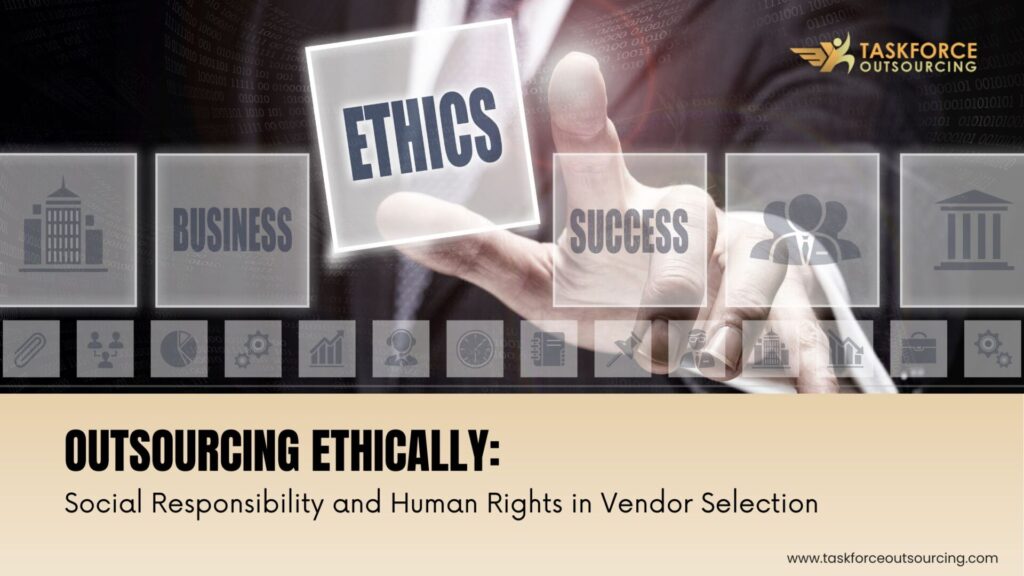In today’s globalised economy, outsourcing has become a common practice for businesses seeking cost efficiency and specialised skills. However, it’s crucial to approach outsourcing with a strong ethical framework to ensure that social responsibility and human rights are upheld. Here are key considerations for ethical outsourcing:
Contents
Vendor Transparency
Transparency is the cornerstone of ethical outsourcing. Companies should thoroughly vet potential vendors to ensure they adhere to fair labour practices, provide safe working conditions, and respect workers’ rights. Regular audits and open communication channels can help maintain this transparency.
Fair Labor Practices
It’s essential to partner with vendors who comply with international labour standards. This includes fair wages, reasonable working hours, and the prohibition of child labour. Companies should prioritise vendors who demonstrate a commitment to these practices.
Environmental Responsibility
Ethical outsourcing also involves considering the environmental impact of vendor operations. Companies should choose vendors that implement sustainable practices, such as reducing waste, conserving energy, and minimising their carbon footprint.
Cultural Sensitivity
Understanding and respecting cultural differences is vital in maintaining ethical outsourcing relationships. Companies should ensure that their vendors respect local customs and traditions while promoting diversity and inclusion within their workforce.
Long-term Partnerships
Building long-term relationships with vendors can foster mutual growth and development. Companies should invest in vendors’ capabilities and support their efforts to improve labour conditions and sustainability practices.

Conclusion
Ethical outsourcing is not just about compliance; it’s about making a positive impact on the global community. By prioritising social responsibility and human rights in vendor selection, companies can contribute to a more equitable and sustainable world.
Frequently Asked Questions (FAQs)
A: Ethical outsourcing involves selecting vendors who prioritise social responsibility, respect human rights, and promote fair labour practices.
A: Social responsibility ensures that vendors operate sustainably, treat their workers fairly, and contribute positively to their communities, which enhances brand reputation and trust.
A: Conduct audits, review certifications, and request transparency on labour practices and conditions. Engaging in direct dialogue with vendors is also beneficial.
A: Look for compliance with international labour standards, fair wages, safe working conditions, and non-discrimination policies.
A: Yes, ethical outsourcing can enhance brand loyalty, mitigate risks, and improve long-term relationships with customers and stakeholders.


